As the world shifts towards a more sustainable and eco-friendly future, electric cars have emerged as a compelling choice for environmentally conscious individuals. If you’re considering making the transition to an electric car, it’s crucial to make an informed and smart investment. In this guide, we present 11 super tips to help you navigate the exciting world of electric cars, ensuring you make a wise and eco-conscious choice that aligns with your needs and preferences. Let’s embark on the journey of going electric and driving toward a greener tomorrow.
Inevitably, The electric car is here. Whether it’s a Tesla or a Chevy Bolt, there are many reasons to buy an EV. But before you do, there are several questions you should ask yourself. Here are eleven tips for buying an electric car:
What’s the range of the electric car? 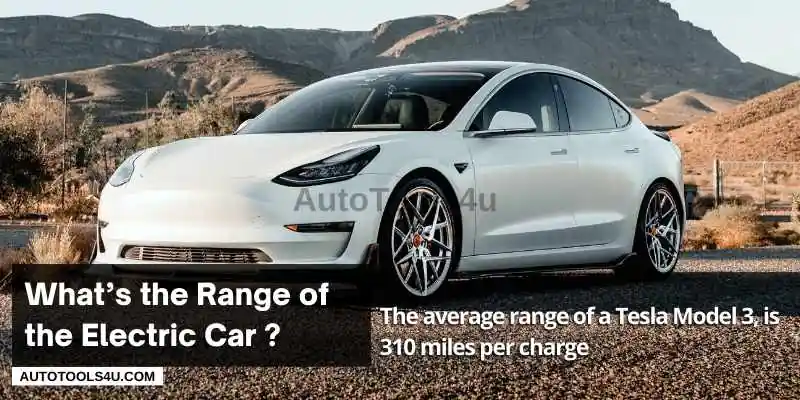
The range of an electric car is largely dependent on the model and how you drive. The average range of a Tesla Model 3, for example, is 310 miles per charge. That average can be increased by driving conservatively (i.e., without using high speeds or slamming the gas pedal) and keeping your speed below 85 mph (135 km/h).
The range of an electric car also depends on how much you drive each day and where you charge it. In cities with lots of charging stations and good weather conditions, your battery won’t drain as quickly as it would in rural areas where there aren’t many charging stations or extreme weather conditions like heavy rain storms or snowstorms that might cause your car’s battery to drain faster than usual
Finally, know that when calculating electric car ranges all factors should be taken into account: terrain (city vs country roads), weather conditions such as temperature variations between night and day cycles, etc., type of vehicle used (SUV vs Sedan), driver habits including accelerator sensitivity settings which could affect mpg ratings based on certain types of vehicles; etc…
What are road tax and insurance costs for EVs? 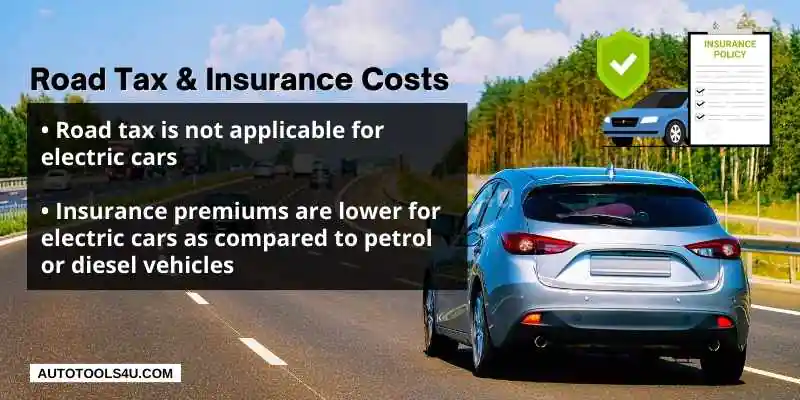
Road tax is not applicable for electric cars, so you can enjoy free parking and no road tax.
Insurance premiums are lower for electric cars as compared to petrol or diesel vehicles. For example, an insurance premium for a Nissan Leaf is £321 per year as compared to £800-£1,000 for an equivalent petrol or diesel vehicle. You may need to call your insurance company in advance to discuss the costs of insuring your EV based on its make and model, but you should expect lower premiums than what would be required if you were driving a conventional car.
Budget EV or High-End Electric car?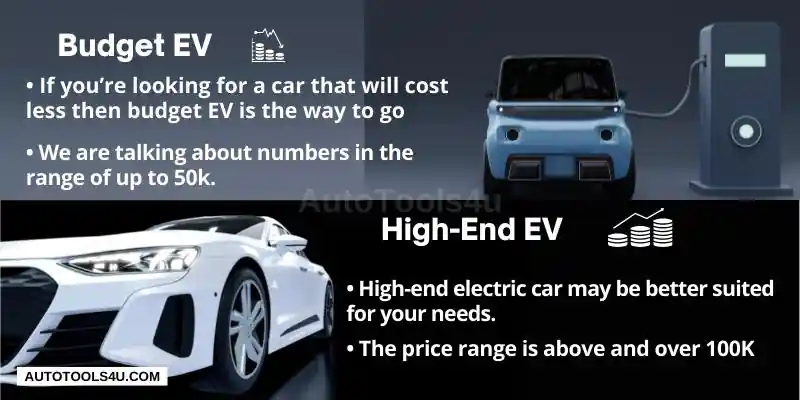
If you’re looking for a car that will cost less, but still is reliable and safe, then a budget EV is the way to go. This is usually a good choice for people who don’t drive too far on regular basis or don’t really care about having the latest technology in their vehicles. We are talking about numbers in the range of up to 50k.
If you want something more high-end and powerful, then a high-end electric car may be better suited for your needs. While these cars tend to be more expensive than their lower-end counterparts, they also have features that allow them to save money on gas over time as well as other benefits like better power and speed options (depending on which model you choose). The price range is above and over 100K.
When deciding whether or not to get an electric car, it’s important that you take into consideration how much money you’ll be willing to spend on a vehicle. You may also want to think about how often will drive it and where your commute takes place.
Using EVs for Long commutes?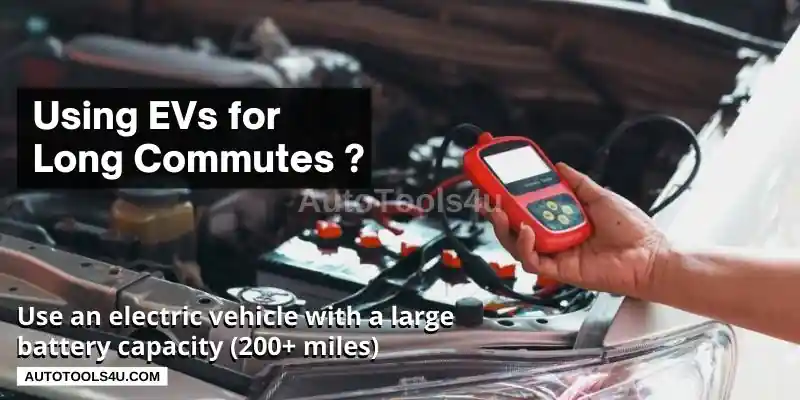
The answer to this question depends on many factors, such as the car’s range and the cost of charging. For example, if you have access to free charging at work, then an electric vehicle might not be the right choice for you. On the other hand, if your commute is long and costs a lot per mile (like driving across town in L.A.), then an electric car could save money over time because electricity is cheaper than gasoline or diesel.
Depending on where you live and work, there are options available when it comes to driving an EV for your daily commute:
- Use an electric vehicle with a large battery capacity (200+ miles). This will allow you to drive long distances without worrying about running out of power. Most EVs offer this option today but may require upgrading from standard battery capacity later down the line if need be
- Drive a hybrid or plug-in hybrid instead; these vehicles can still use fuel but also have smaller batteries so they’re more efficient when using energy from gasoline/diesel since less energy goes into powering up those components instead
Consider Plug IN Hybrids – PHEV – rather than EVs ?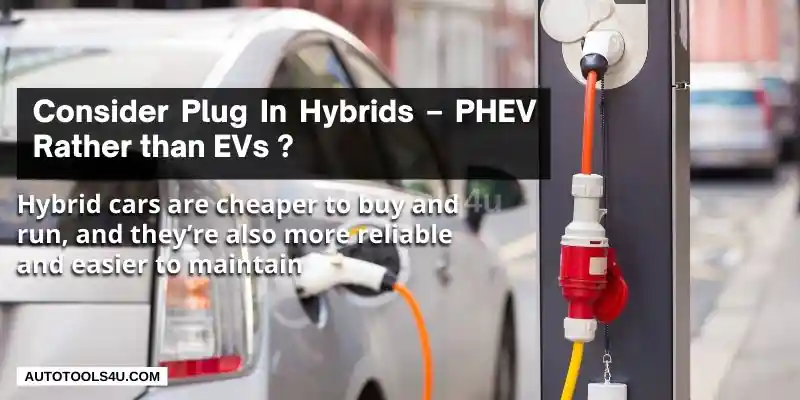
Perhaps you should consider a hybrid rather than an EV? Hybrid cars are cheaper to buy and run, and they’re also more reliable and easier to maintain. They’re more comfortable too – you don’t have to worry about finding somewhere safe to park your EV, or having nowhere to plug it in when you want to recharge. If you want the environmental benefit of an electric car without having all the hassle associated with owning one, then a hybrid is probably for you.
PHEV or Plug-in Electric cars can be a good solution to circumstances where the commute is short or run is restricted to small city hops. These days you can buy PHEVs up to the range of 50 Miles.
Electric cars are becoming more popular by the day. They’re environmentally friendly, and they can save you money on petrol. However, not all electric cars are created equal. Some perform better than others, and some cost more to buy and run than others.
How long will it take to recharge an electric car? 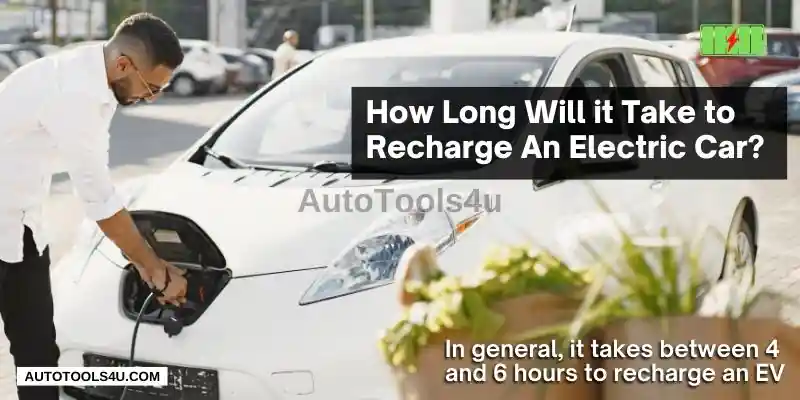
In general, it takes between 4 and 6 hours to recharge an EV. This is the average time required to fully charge the battery of most electric cars.
On a charging station, you can charge an EV using rapid chargers which can charge at a rate of 100 miles/hour.
A plug-in hybrid will take roughly 1 to 2 hours because it hosts smaller batteries than a typical EV can carry. Hybrids usually have a smaller battery capacity compared to other vehicles, plus they use both gasoline and electricity as sources of power when driving.
Petrol-powered cars are going to require less time – on average, it takes one or two hours before they’re full again
What are the charging costs of an electric car? 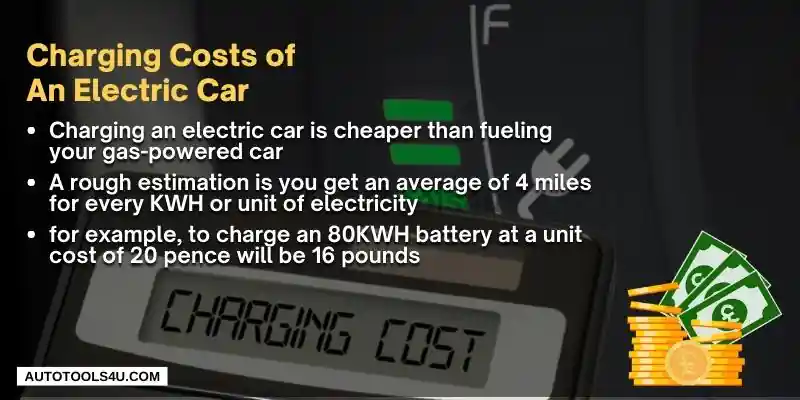
Charging an electric car is cheaper than fueling your gas-powered car.
A rough estimation is you get an average of 4 miles for every KWH or unit of electricity.
The cost of charging is simply Battery capacity in kWh multiplied by the unit cost of electricity.
for example, to charge an 80KWH battery at a unit cost of 20 pence will be 16 pounds.
When it comes to paying for fuel, there are a number of factors to consider. You have the initial purchase price of the vehicle, plus ongoing maintenance costs and repairs. You also have to factor in the cost of gas itself (which varies from state to state) and variable gas prices based on how much you’re driving each year. But what about charging an electric car? How does that compare?
In some cases, it’s actually cheaper than filling up! While electricity isn’t necessarily free—electricity costs vary depending on where you live—it certainly doesn’t come close to matching the price of gasoline when it comes down to per kilometer costs: charging an electric car will cost roughly half as much as driving with gasoline power. This can save you hundreds or even thousands per year over time depending on how often you drive your vehicle.
Are there any government savings or incentives for EV purchases? 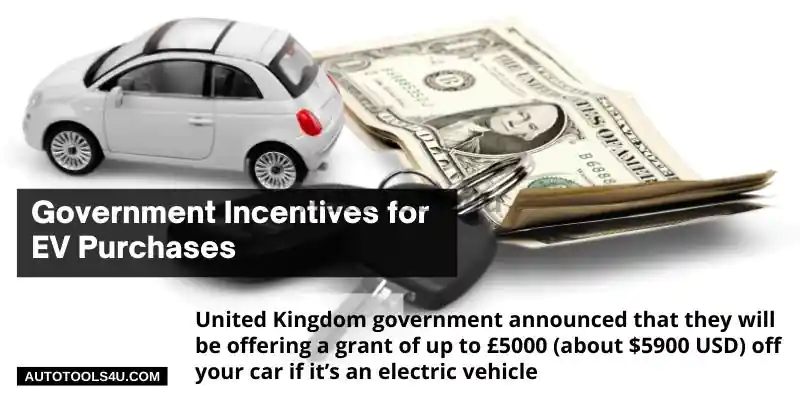
If you live in the United Kingdom, there are some government savings on electric cars that may help you decide to go green. The government announced that they will be offering a grant of up to £5000 (about $5900 USD) off your car if it’s an electric vehicle. This is intended to help increase sales and reduce emissions in all areas of the country.
The US has also implemented some incentives for people who want to buy an EV but don’t have much money lying around — specifically, the state tax credits are available for California residents who purchase an EV from certain manufacturers (notably Tesla). There are also federal tax credits available from the Department of Energy that apply across all 50 states and six Canadian provinces, which can add up to $7500 off your purchase price!
In Australia, there’s a similar program where state governments pay half your cost when buying an EV. In Canada, there’s also a rebate program but it was only open for a short window of time.
the thing about these government grants and sponsorships is, that they are time sensitive and only last for a quick period of time, so be quick and rapid in your response should you wish to take advantage of these programs.
Is an EV a good choice for my lifestyle? 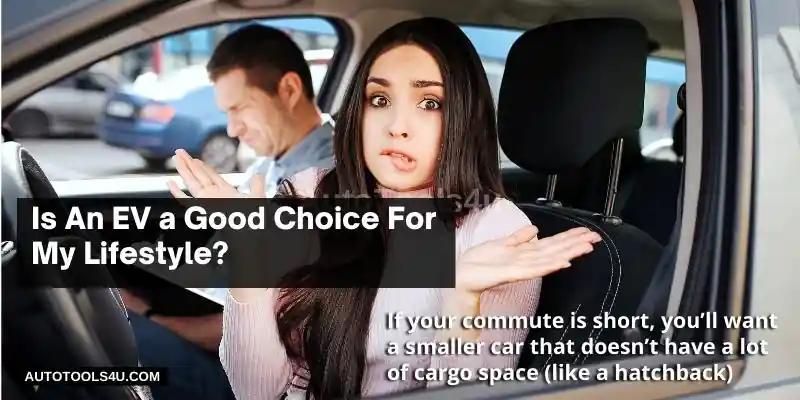
- How will you use the car?
Use this to help determine what kind of car to buy. If your commute is short, you’ll want a smaller car that doesn’t have a lot of cargo space (like a hatchback). On the other hand, if you drive long distances regularly and need more cargo room, then consider buying an SUV or van.
- How far can it go on one charge?
If there aren’t many charging stations in your area and/or you don’t have access to electricity at home or work, then it’s important to think about how much range (distance) an electric vehicle can travel before needing a recharge. Some EVs only go 150 miles per charge while others can get up over 300 miles before needing another charge! That said, keep in mind that most people only drive between 20 to 60 miles per day according to research done on generally available data.
Is there a national infrastructure for EV charging? 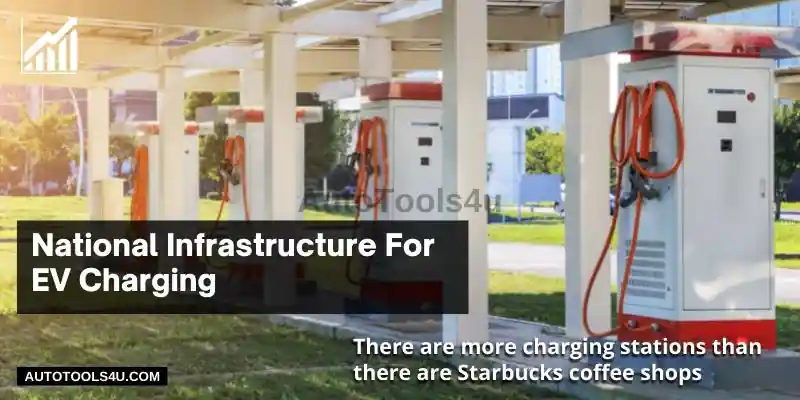
With the rise of electric vehicles, the number of charging stations has been steadily increasing. There are more charging stations than you would think.
There are more charging stations than there are gas stations.
There are more charging stations than there are Starbucks coffee shops.
There are even more charging points per mile in cities than McDonalds or Walmarts. Even Tesco (the UK grocery chain) and other superstores have their own plug-in points so you can charge your electric car while shopping for groceries or other items!
What used EVs should I consider buying? 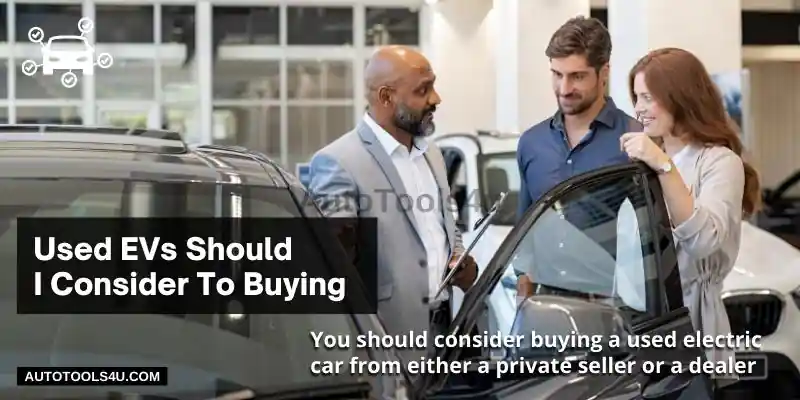
You should consider buying a used electric car from either a private seller or a dealer.
If you are planning to buy from a private seller, you may want to ask if they have any warranty left on the car. If so, make sure that it is transferable and that it covers the battery and drivetrain.
If you decide to purchase an electric vehicle through a dealer, make sure that they offer an extended service plan (also known as an Extended Service Agreement) with their used EVs.
Example: Chevy Bolt can travel more miles than you may think on one charge. 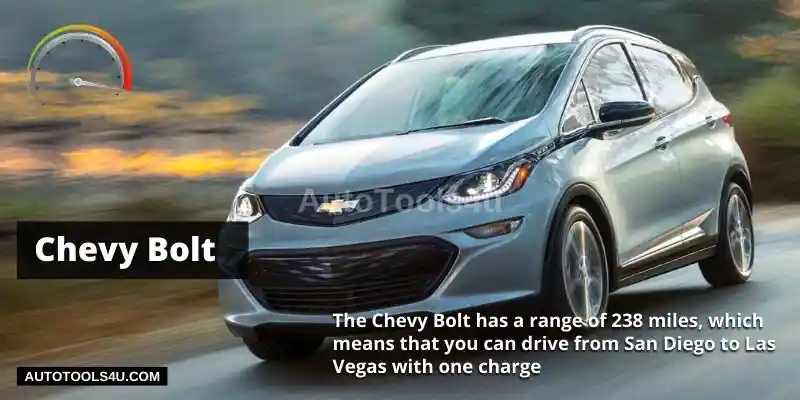
One personal takeaway from this blog post is that the Chevy Bolt can travel more miles than you may think on one charge. The Chevy Bolt has a range of 238 miles, which means that you can drive from San Diego to Las Vegas with one charge.
The Chevy Bolt is a good choice for your lifestyle. It’s sleek, comfortable, and has a range of over 400 miles on one charge. The Bolt gets great gas mileage too – up to 150 mpg. Plus with an EPA estimated 238 MPGe rating, you’ll save money on fuel costs every time you drive it! There are many other EVs out there that can offer similar features but if none of them appeal to you personally then maybe hybrid vehicles would be better suited for now rather than later when they come down in price
